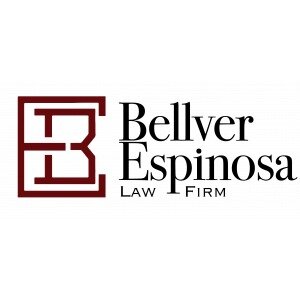Best Employment Benefits & Executive Compensation Lawyers in Puerto Rico
Share your needs with us, get contacted by law firms.
Free. Takes 2 min.
Or refine your search by selecting a city:
List of the best lawyers in Puerto Rico
About Employment Benefits & Executive Compensation Law in Puerto Rico
Employment Benefits & Executive Compensation law in Puerto Rico is a specialized area focusing on the provisions for employee benefits, retirement plans, executive compensation, and compliance with applicable labor laws. Puerto Rico has unique laws and regulations when it comes to employment benefits that can differ significantly from those in the mainland United States. These laws aim to protect workers' rights while balancing employers' ability to manage their workforces effectively. Therefore, having a clear understanding of both federal and local laws is crucial for both employers and employees.
Why You May Need a Lawyer
Individuals and businesses may require legal assistance in Employment Benefits & Executive Compensation for various reasons. Common situations include:
- Disputes over employment benefits or executive compensation agreements.
- Understanding the complexities of ERISA and local regulations.
- Compliance issues with relevant labor laws and tax implications.
- Negotiating employment contracts and executive compensation packages.
- Assessing employee rights under various benefits plans.
- Addressing discrepancies in retirement or pension plan administration.
Local Laws Overview
Puerto Rico's legal landscape for Employment Benefits & Executive Compensation is governed by both federal laws, such as the Employee Retirement Income Security Act (ERISA), and distinct local laws. Key aspects include:
- Puerto Rico Labor Law: This includes provisions that affect holidays, vacation pay, and other benefits that differ from the U.S. mainland standards.
- Income Tax Regulations: Puerto Rico has its tax code impacting the structuring and taxation of employee benefits and executive compensation.
- Minimum Wage and Employment Conditions: Local laws stipulate specific conditions regarding minimum wages, overtime, and work conditions, impacting benefits.
Frequently Asked Questions
What is the difference between federal and Puerto Rico employment benefits laws?
Federal laws, such as ERISA, set certain standards for employee benefits that apply nationwide, including Puerto Rico. However, Puerto Rico has specific laws that may differ in terms of holiday pay, minimum wage, and other conditions, thus requiring compliance with both sets of regulations.
Can executive compensation packages be taxed differently in Puerto Rico?
Yes, Puerto Rico has a different tax code that influences how executive compensation is structured and taxed, potentially leading to different financial planning considerations than on the U.S. mainland.
How do I resolve a dispute with my employer over benefits?
Disputes over benefits should first be addressed internally using the employer's grievance processes. If unresolved, legal counsel specializing in employment benefits can provide guidance and representation.
Is my pension plan in Puerto Rico protected under ERISA?
Pension plans in Puerto Rico are subject to ERISA, which sets minimum standards. However, specific compliance and protection measures can vary, so local legal advice is essential.
Are there local benefits mandated by Puerto Rican law?
Yes, certain benefits are uniquely mandated by Puerto Rican law, including specific holiday pay regulations and enhanced maternity leave, differing from federal standards.
How do I know if my employment agreement complies with local laws?
Reviewing the agreement with an attorney experienced in Puerto Rico's employment laws ensures compliance and identifies potential gaps in benefits or compensation conditions.
What are the penalties for not complying with Puerto Rico employment benefits laws?
Non-compliance can result in significant penalties, including fines and potential legal action from employees, making it crucial for employers to stay informed and compliant.
Is it possible for Puerto Rico to overrule federal employment benefits laws?
While Puerto Rico can establish its laws, it cannot overrule federal laws. Instead, it implements additional regulations that complement federal legislation, requiring compliance with both.
What should expatriates know about executive compensation in Puerto Rico?
Expatriates should be aware of potential tax liabilities and different structuring options under Puerto Rican law, which may affect their compensation and benefits packages.
How can businesses ensure compliance with both federal and local laws?
Employers should conduct regular audits of their benefits programs, seek expert legal counsel, and stay updated on legal changes to ensure compliance with both federal and local laws.
Additional Resources
Several resources can provide further guidance and support:
- Department of Labor and Human Resources of Puerto Rico (DTRH): Offers information on labor rights and regulations.
- Puerto Rico Chamber of Commerce: Provides networking and educational resources for businesses.
- Employee Benefits Security Administration (EBSA): Part of the U.S. Department of Labor, offers resources on federal benefits law.
- Local Law Firms and Consulting Agencies: Specializing in Employment Benefits & Executive Compensation for personalized legal advice.
Next Steps
If you need legal assistance in Employment Benefits & Executive Compensation, consider the following steps:
- Identify Your Needs: Clearly define the legal issues or questions you need assistance with.
- Research Qualified Attorneys: Look for lawyers specializing in Employment Benefits & Executive Compensation law in Puerto Rico.
- Schedule a Consultation: Meet with a legal expert to discuss your situation and explore your options.
- Gather Relevant Documentation: Prepare any employment contracts, benefits plans, or correspondence that may be relevant to your case.
- Stay Informed: Keep abreast of changes in both federal and local employment laws that could impact your situation.
Lawzana helps you find the best lawyers and law firms in Puerto Rico through a curated and pre-screened list of qualified legal professionals. Our platform offers rankings and detailed profiles of attorneys and law firms, allowing you to compare based on practice areas, including Employment Benefits & Executive Compensation, experience, and client feedback.
Each profile includes a description of the firm's areas of practice, client reviews, team members and partners, year of establishment, spoken languages, office locations, contact information, social media presence, and any published articles or resources. Most firms on our platform speak English and are experienced in both local and international legal matters.
Get a quote from top-rated law firms in Puerto Rico — quickly, securely, and without unnecessary hassle.
Disclaimer:
The information provided on this page is for general informational purposes only and does not constitute legal advice. While we strive to ensure the accuracy and relevance of the content, legal information may change over time, and interpretations of the law can vary. You should always consult with a qualified legal professional for advice specific to your situation.
We disclaim all liability for actions taken or not taken based on the content of this page. If you believe any information is incorrect or outdated, please contact us, and we will review and update it where appropriate.
Browse employment benefits & executive compensation law firms by city in Puerto Rico
Refine your search by selecting a city.









